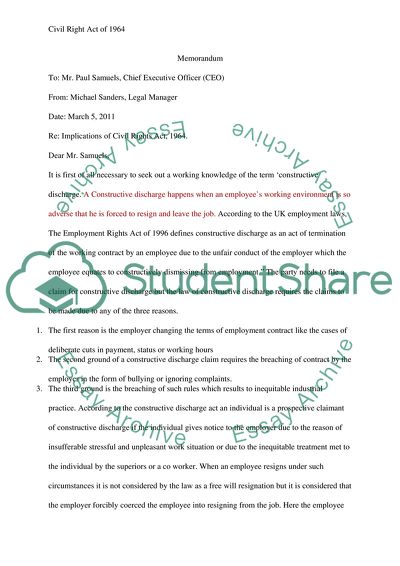Cite this document
(“Civil Right Act of 1964 Research Paper Example | Topics and Well Written Essays - 1750 words - 1”, n.d.)
Civil Right Act of 1964 Research Paper Example | Topics and Well Written Essays - 1750 words - 1. Retrieved from https://studentshare.org/law/1749484-civil-right-act-of-1964
Civil Right Act of 1964 Research Paper Example | Topics and Well Written Essays - 1750 words - 1. Retrieved from https://studentshare.org/law/1749484-civil-right-act-of-1964
(Civil Right Act of 1964 Research Paper Example | Topics and Well Written Essays - 1750 Words - 1)
Civil Right Act of 1964 Research Paper Example | Topics and Well Written Essays - 1750 Words - 1. https://studentshare.org/law/1749484-civil-right-act-of-1964.
Civil Right Act of 1964 Research Paper Example | Topics and Well Written Essays - 1750 Words - 1. https://studentshare.org/law/1749484-civil-right-act-of-1964.
“Civil Right Act of 1964 Research Paper Example | Topics and Well Written Essays - 1750 Words - 1”, n.d. https://studentshare.org/law/1749484-civil-right-act-of-1964.


